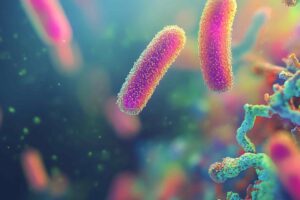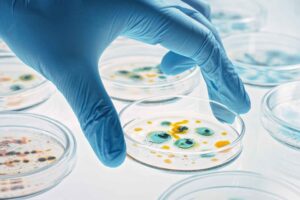Giorgia Guglielmi
Giorgia Guglielmi is a freelance science writer based in Basel, Switzerland. Specializing in life sciences, medicine, and the relationship between science and society, she has published numerous articles in outlets including Nature, Science, and Scientific American. She holds a PhD in biology from the European Molecular Biology Laboratory and a Master’s in Science Writing from the Massachusetts Institute of Technology. She has received recognition for her work, including the John Kendrew Award in 2020 and an ERC-funded FRONTIERS Media Fellowship in 2025. She has also led lectures and workshops on science communication at institutions such as Harvard University and the University of Zurich.
Gastroenterology, Scientific research
The study identified a core microbiota signature that may serve as a health indicator and a therapeutic target.
Scientific research
Standardizing microbiome analysis improves the quality and reliability of data, helping researchers to explore the gut microbiota’s impact on athletes and its relationship with health and performance.
Gastroenterology, Pediatrics
The results also indicate that the hospital environment influences the gut bacteria of preterm infants, highligting the importance of managing antibiotics and medications to support a healthy gut development.
Scientific research
The findings improve our understanding of the genetic complexity of the human gut microbiota and its implications for health.
Gastroenterology, Nutrition
The findings highlight the complex interactions between some dietary compounds and the gut microbiota, suggesting that microbial variations can impact health in different ways.
Pediatrics
The findings highlight the importance of the gut microbiota in gut development and immunity, and they provide insights into how microbiota-based interventions could prevent serious conditions such as NEC.
Gastroenterology
Many common drugs — including antibiotics — can inhibit the growth of gut bacteria and alter their function.
Gastroenterology, Neuroscience
The findings suggest that the vagus nerve and amygdala are crucial in maintaining microbiota balance and could serve as targets for mitigating stress-related gut and immune conditions.
Pediatrics
The results of a recent study suggest that the milk microbiota and maternal genetics affect a child’s susceptibility to asthma and allergies.
Geriatrics, Scientific research
The results of a recent study suggest that P. distasonis and glycitein help regulate inflammation associated with rheumatoid arthritis.











